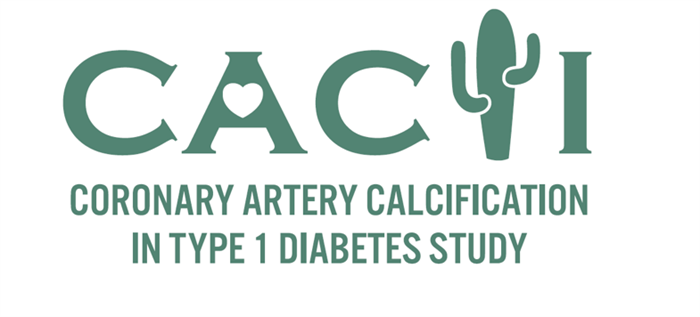
The Coronary Artery Calcification in Type 1 Diabetes (CACTI) study started in 2000 with the purpose of enrolling the largest population-representative cohort of adults with type 1 diabetes and similar age and sex non-diabetic controls to learn what risk factors contribute to the higher risk of atherosclerotic cardiovascular disease in people with type 1 diabetes. There were 1,416 adults between the ages of 19-56 years of age (652 with type 1 diabetes and 764 non-diabetic controls) enrolled into CACTI. CACTI is a single-center study that has been conducted in the Denver metropolitan area at the Barbara Davis Center for Diabetes located on the University of Colorado Anschutz Medical Campus. However, collaborators are located across the United States and internationally, and study participants have also continued their participation after moving out of the state and even out of the country.
The
study has been funded through grants from the NIH through several
institutes (NHLBI, NIDCR and NIDDK), as well as by grants from JDRF and
the American Diabetes Foundation. Participants completed a baseline
examination between 2000-2002, and have returned for follow-up
examinations 3, 6 and 12 years later. At each visit, coronary artery
calcium has been measured by CT scan to assess subclinical
atherosclerosis, physical examinations have been completed to assess
cardiovascular risk factors (blood pressure, electrocardiogram, blood
tests for lipids, glycemic control, anthropometrics) and questionnaires
have been collected (medical history, diabetes history and
complications, reproductive history and menopause status for women,
current medication use and insulin dose, diet and physical
activity). Current visits are ongoing under a grant from the
NIH/NIDCR.
Are you interested in analyzing CACTI data? Working with CACTI investigators? Establishing an Ancillary study to the main CACTI study visits?
The CACTI study has resulted in more than 100 publications, and has a wealth of data on this unique, population-representative cohort of adults with type 1 diabetes as well as the cohort of adults without diabetes. The study is open to collaborations, including the establishment of Ancillary studies as well as publication of existing data.
Please contact us for more information regarding opportunities for collaboration and publication, or download and complete an Ancillary Study Request or Paper Proposal Request.